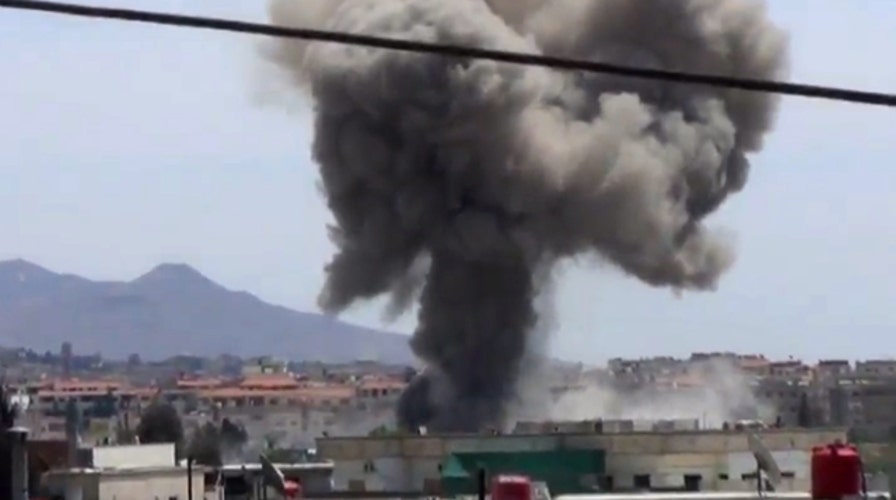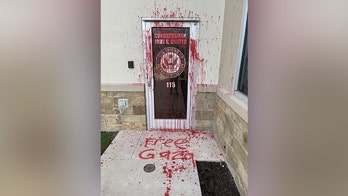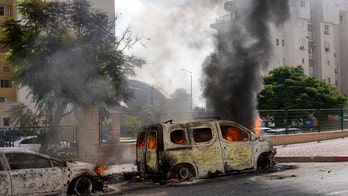Congressional Republicans said Sunday that President Obama must stick with his vow to take action should Syria cross a “red line” by using chemical weapons on citizens, amid such mounting evidence, but cautioned against sending in troops.
"The president has laid down the line, and it can't be a dotted line,” House Intelligence Committee Chairman Rep. Mike Rogers, R-Mich., told ABC’s “This Week.” “It can't be anything other than a red line.”
U.S. officials said last week that the government of Syrian President Bashar al-Assad probably used chemical weapons twice in March, amid a two-year civil war in which more than 70,000 people have been killed and hundreds of thousands more displaced.
“For America to sit on the sidelines and do nothing is a huge mistake," Georgia Republican Sen. Saxby Chambliss told CBS’ “Face the Nation.”
Arizona Sen. John McCain has been among congressional Republicans most critical of the president’s stance on Syria.
He argued on NBC’s “Meet the Press” that the red line strategy has given Assad a “green light” to do almost everything up to that point -- including the use of missiles, helicopter attacks and other civilian strikes that have resulted in “atrocities on a scale that we have not seen in a long, long time.”
However, he joined a bipartisan call this weekend against sending U.S. troops into Syria.
"The worst thing we could do is put boots on the ground," McCain said.
He and fellow Hill lawmakers fear the chemical weapons could be more dangerous in the hands of U.S. enemies or those who might overthrow Assad. And he joined in calls for the United States to be part of an international force to safeguard the weapons.
“The day after Assad [leaves] is the day that these chemical weapons could be at risk,” Chicago Democratic Rep. Jan Schakowsky told ABC. “We could be in bigger, even bigger trouble.”
Maryland Democratic Sen. Ben Cardin urged Sunday afternoon on Fox against sending troops, saying that’s exactly what the Assad regime wants.
Republican Sen. Lindsey Graham, South Carolina, also said the U.S. could safeguard the weapons without a ground force. But he said the weapons must be protected from getting into the hands of enemies.
"The next bomb that goes off in America may not have nails and glass," he told CBS, referring to the April 15 Boston Marathon bombing in which three people were killed and more than 260 others were injured.
Obama has also said Assad transferring the stockpile of weapons to terrorists would also cross the line.
The assessment that Syria used chemical weapons last month followed similar conclusions from Britain, France, Israel and Qatar -- key allies eager for a more aggressive response to the Syrian conflict.
The United States is already providing humanitarian aid and non-lethal support to Syrian opposition forces.
Obama has insisted that any use of such weapons would change his thinking about his country’s role in Syria but said he didn't have enough information to order aggressive action.
"For the Syrian government to utilize chemical weapons on its people crosses a line that will change my calculus and how the United States approaches these issues," Obama said Friday.
Both sides of the civil war accuse each other of using the chemical weapons.
The deadliest such alleged attack was in the Khan al-Assal village in the Aleppo province in March. The Syrian government called for the United Nations to investigate alleged chemical weapons use by rebels in the attack that killed 31 people.
Syria, however, has not allowed a team of experts into the country because it wants the investigation limited to the single Khan al-Assal incident, while U.N. Secretary General Ban Ki-moon has urged "immediate and unfettered access" for an expanded investigation.
The Associated Press contributed to this report.





